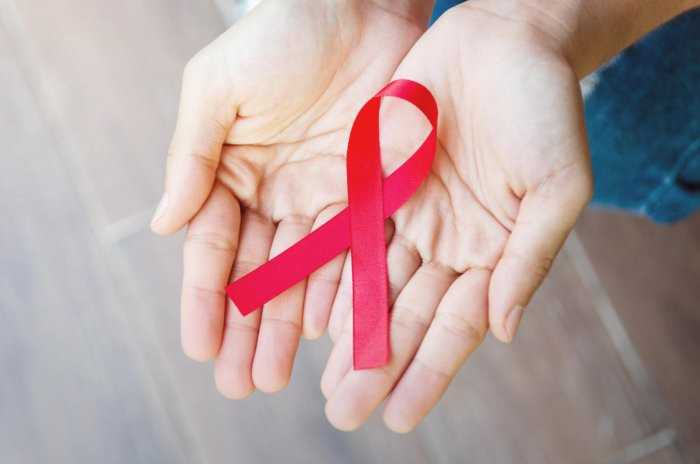The don warned that though diphtheria is a vaccine-preventable disease, treating it at home could be dangerous and might increase the risks of death.
Olugbenga Mokuolu, a Professor of Paediatrics at the Department of Paediatrics, College of Health Sciences, University of Ilorin, Kwara State, has issued a warning to parents.
She warned parents against treating their children with diphtheria infection at home.
By Samuel
The don warned that though diphtheria is a vaccine-preventable disease, treating it at home could be dangerous and might increase the risks of death.
Mokuolu, who is also a Consultant Paediatrician at the University of Ilorin Teaching Hospital, said diphtheria is a very severe illness and not something they can manage at home with over-the-counter drugs.
The researcher disclosed this during an exclusive interview with PUNCH HealthWise, stressing that the solution to the disease outbreak is vaccination.
He advised parents to ensure their children are fully vaccinated from birth according to the National Programme on Immunisation Schedule.
According to the Nigeria Centre for Disease Control, diphtheria is a serious bacterial infection caused by the bacterium called Corynebacterium species that affects the nose, throat, and sometimes, the skin of an individual.
The latest data by the NCDC showed Nigeria has so far recorded a total of 123 diphtheria infections and 38 deaths across four states of the federation as of 22 January.
The data indicated Kano State recorded the highest with 100 confirmed infections and 32 deaths, followed by Yobe with 17 infections and three deaths.
The symptoms of diphtheria according to NCDC include fever, runny nose, sore throat, cough, red eyes (conjunctivitis), and neck swelling.
Speaking with our correspondent, Mokuolu said, “Ordinarily, diphtheria is one of the so-called vaccine-preventable diseases and it is part of the regular immunisation schedule.
“At this point, we should just ensure that babies get vaccinated according to the National Programme on Immunisation Schedule from birth.
“From six weeks of birth, we have the diphtheria-tetanus-pertussis vaccine (DPT vaccine) that is given to children which babies are supposed to receive at six weeks, 10 weeks, and 14 weeks.
“So, it is important that we keep this immunisation schedule properly to protect against this type of outbreak that is happening.”
The child health expert blamed the outbreak on a reduction in immunisation coverage.
“The current outbreak may not be unconnected with the fact that there has been some reduction over time in coverage of immunisation. It is a vaccine-preventable disease. Our solution will be a vaccine.
“To continue to be vigilant to isolate cases as they occur and to ensure that those diagnosed with the infection are giving their treatment. It is eminently vaccine preventable”, he noted.
The World Health Organisation says while immunisation is one of the most successful public health interventions, coverage has plateaued over the last decade.
According to the global health body, the COVID-19 pandemic and associated disruptions have strained health systems, with 25 million children missing out on vaccination in 2021, 5.9 million more than in 2019, and the highest number since 2009.
Warning against poor management of the throat infection, the paediatrician said, “It is not something parents can manage at home. It is a very severe illness.
“Any child with symptoms like cough, fever, or difficulty in breathing should be sent to the hospital for proper evaluation instead of just going to buy over-the-counter drugs. We should not just be careless.
Excessive Fasting Can Damage the Kidney – NAFDAC Warns
“It can be treated, but again, there is the danger of rapid death. One of the main things about diphtheria is that, when you look at the person who has it and you look at the throat, you will see a white patch inside that throat.
“Now, that thing can obstruct breathing, and therefore, if that occurs, the person can die rapidly. So, that is the major problem with it.
“There can be an obstruction in breathing resulting in rapid death. Death could be very high if there is a delay in diagnosis, treatment, lack of supportive care, and if the proper things are not done.”
The don counselled parents to be vigilant and to take their children with fever, cough, and breathing difficulty for proper medical evaluation.
Don’t Treat Children With Diphtheria At Home – Pediatrician Warns Parents
He reiterated that diphtheria is a vaccine-preventable disease, urging all parents and guidance to ensure their wards are fully vaccinated.
He advised Nigerians to adhere strictly to the public health safety measures and report likely cases of signs and symptoms to the nearest health facilities.
According to data by the NCDC, diphtheria spreads easily between people through direct contact with infected people’s droplets from coughing or sneezing, and contact with contaminated clothing and objects.
“People most at risk include children and adults who have not received any dose of the pentavalent vaccine.
WHO Issues Alert As Cough Syrups Kill 300 Children,
“People who live in areas with poor sanitation, people who live in a crowded environment, and healthcare workers exposed to suspected or confirmed cases of the disease.
“The onset of signs of the disease usually starts after two to 10 days of exposure to the bacteria.
“In severe cases, a thick grey or white patch appears on the tonsils and/or at the back of the throat associated with difficulty in breathing,” NCDC said.
The health agency states that complications from diphtheria included airway blockage, damage to the heart muscle, nerve damage, and kidney failure.




